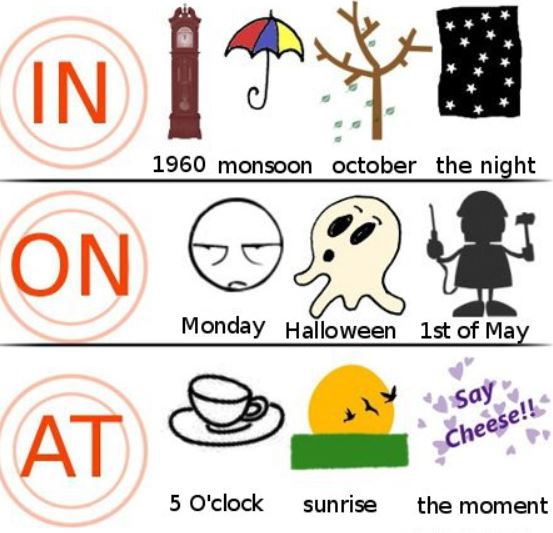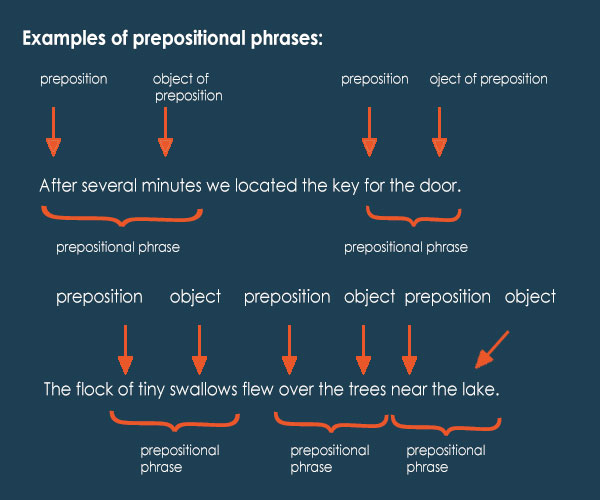| Prepositions |
|---|
| Assessment questions |
Split the word preposition into two parts, pre + position.
Pre- means before. Preposition there means position before, or place before.
A preposition is therefore a word placed before a noun or a pronoun.
Remember a pronoun is a word that stands in place of a noun.
Prepositions are the words that indicate location.
Usually, prepositions show this location in the physical world. Check out the three examples below:
On, in, and beside are all prepositions. They are showing where the puppy is.
Prepositions can also show location in time.
Read the next three examples:
At midnight, Jill craved mashed potatoes with grape jelly.
In the spring, I always vow to plant tomatoes but end up buying them at the supermarket.
During the marathon, Iggy's legs complained with sharp pains shooting up his thighs.
At midnight, in the spring, and during the marathon all show location in time.
Examples:
2.Grace is sitting on the table
The words under and on are used before the nouns a tree and the table to show place and position.
These words are called prepositions
Some prepositions tell the positions of one or more things in relation to each other.
Consider the positions of the boy in these diagrams.

For example:
Prepositions also relate nouns and pronouns to other parts of a sentence.
They:
1. Come before a noun or a pronoun as connection.
Here are some examples with the common prepositions 'in', 'on', and 'at'. These three prepositions are often used to describe location or time.
In each of these sentences, a noun is connected to another noun.
Prepositions can also connect a noun or pronoun to the action of a sentence. When this happens, the preposition connects the noun after it to the verb in the sentence.
Here are more examples using 'in', 'on' and 'at', but in these sentences, a noun or pronoun is connected to the verb.
2. Modify verbs coming before them.
Example: She came into the room
Clean up the kitchen.

He ran over the cat.
The tree fell down.
3. Combine with words to form idiomatic expressions.
Example: The manager gave in to our demands.
Prepositional Phrases
A preposition combines with nouns and pronouns to form a prepositional phrase. In the following examples of prepositional phrases, the prepositions have been italicised:

Some prepositional phrases are used as idiomatic expressions.
They have a meaning which is different from the meaning of each of the words that make up the phrase.
Examples include:
1. You were hands down the best player on the team.
There was no competition
2. I've been feeling pretty down in the dumps lately
Sad or depressed
3. I've been feeling under the weather.
Not well
4. That sound is driving me up the wall!
Making me very annoyed
5. We're all in the same boat.
All of us are in the same position.
watch this video on Prepositions in on under and by